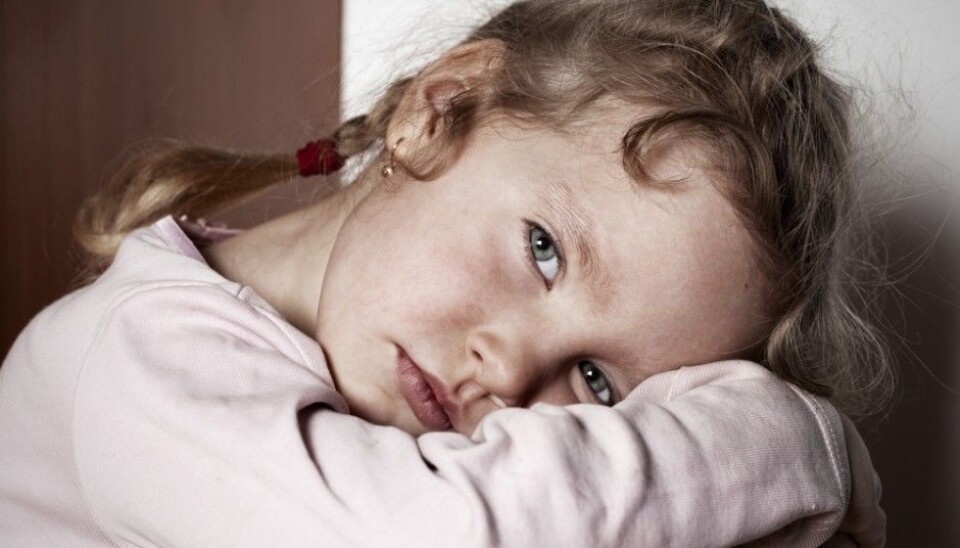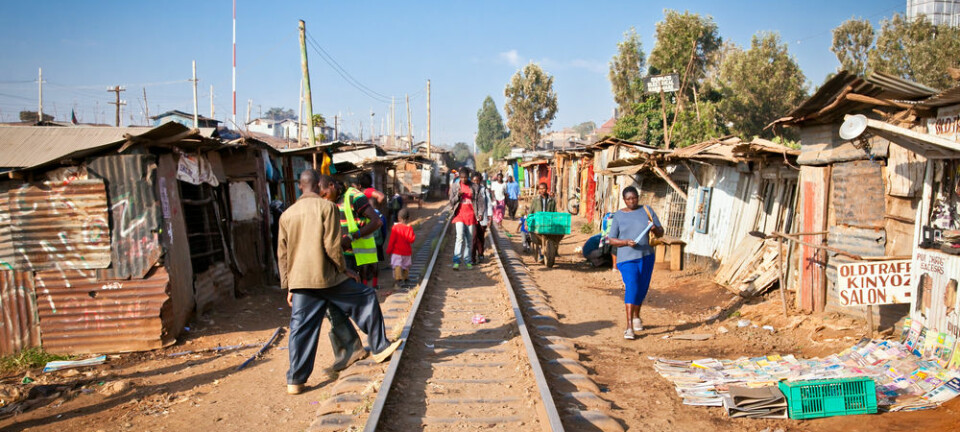
Economic equality is the best way to combat child poverty
Norwegian society is moving towards greater economic inequality, according to new figures on child poverty in Norway. Can this development be turned around?
The proportion of children growing up in low-income households with persistent poverty has more than doubled in Norway over the last 15 years.
Is Norway heading towards the same conditions that prevail in the United States and many European countries, where economic disparities are much greater than in Norway?
This question was the focus of the recent report on growing up in Norway presented by the Norwegian Directorate for Children, Youth and Family Affairs (Bufdir).
Warns against a dangerous development
British professor of social epidemiology Richard Wilkinson believes that much of the reason Norway has just been ranked as the happiest country in the world is because of the smaller income gap between rich and poor than in many other countries.
“Although child poverty is on the rise in Norway, it’s become much worse and is occurring at a faster pace in other parts of Europe,” he said.
Wilkinson has been in Norway on several occasions and has warned against this dangerous development as economic disparities increase here.
Inequality has its price
Wilkinson’s book, The Spirit Level, co-authored with his wife Kate Pickett, lays out their research documenting the social damage resulting from income inequality.
Crime, psychiatric disorders, obesity, drug abuse and infant mortality are among the social ills associated with inequality. Pickett and Wilkinson believe statistics prove that the bigger the income differences between rich and poor in a society, the worse these health and social problems become.
Countries with less economic disparity, such as in Scandinavia, are currently situated at the positive end of the scale in all these comparative studies.
“Inequality isn’t about having a lot or a little. Inequality is about having lower social status than others in the community,” says Wilkinson.
He believes this affects health, life expectancy and important values, such as the ability to rely on other people.
“I think the fundamental issue is whether we fight each other for access to basic necessities, or recognize each other’s need and share access, and one is about status and power and the other is about friendship and reciprocity. Inequality pushes us away from the reciprocity towards competitive striving for personal, individual advantage, not recognizing the other’s needs,” Wilkinson says.
Politicians must be careful
Kalle Moene, professor of economics at the University of Oslo, says the Bufdir report is important and will be used frequently in this fall’s election.
He urges politicians to be cautious about making big changes in a country like Norway, where things are running relatively well.
Moene points to the fact that most children in Norway have experienced material improvement in recent years, despite the increase in relative child poverty. The material standard of living of the Norwegian middle class has risen so much that the poorest group is now lagging behind, which he believes must be taken seriously.
Moene does not believe that the living conditions of children in Norway have deteriorated dramatically. “But this report is a warning that we could head in the wrong direction,” he says.
Everything is connected
The Scandinavian welfare model isn’t fragile, says Moene. But everything is connected to everything else. There are many self-regulating mechanisms in this system.
“The small differences, good health policies, low levels of bullying and good reading skills are interrelated in this social model. These factors have aligned with each other. Deregulation in one area can lead to larger disparities. And greater disparities can lead to less support for the kinds of policies that have sustained this system,” says Moene.
Can this development be turned around?
Politicians can use economics to understand which measures are most effective in combating poverty, including child poverty.
“You might think that directing welfare budgets towards the most vulnerable groups in society would be the most effective way to fight poverty. But our economic research shows that this kind of targeted approach isn’t politically sustainable. Funding for targeted programs tends to evaporate when sympathy for those vulnerable groups disappears,” says Moene.
He gives the example of the United States after World War II, when American society experienced strong economic development and expanded welfare benefits. Economic differences were small. But as racial conflicts grew throughout the 1960s, support for disadvantaged groups ended.
The first group that to lose funding were single mothers, referred to as "welfare queens." It was alleged that they were fraudulently collecting welfare payments, by living with their husbands and pretending they weren’t. Although many stories turned out to be false, by then this state support was gone.
Regulating rent is better than providing housing allowance
Moene believes that universal measures offer much more support, both to the poorest households and society as a whole.
“Politicians keep resorting to the approach of proving the need for child benefits and other welfare schemes. But we need to move in the opposite direction, towards providing more basic rights to the individual. That’s how we’ll achieve politically viable measures that don’t split society into givers and takers,” he says.
“It’s impossible for a family on a single income to live in Oslo today,” Moene adds.
He believes it would be better to regulate city rents instead of providing housing allowances to poor families.
“A lot of people would benefit from a measure like this, and it would be particularly helpful for poor families with children,” says Moene.
Greater equality benefits all
Wilkinson’s research shows that the most important societal stressors tend to be things related to social relationships.
For instance, he says, “friendship seems highly protective of health, and things to do with low social status are very damaging. The other part of that picture is that a difficult early childhood, stress in early life, seems to cast a long shadow forward.”
Social status differences exacerbate problems related to social status within our societies. But where greater equality is achieved, the benefits are not confined to the poor. “The reasons why the benefits of greater equality extend to a large majority of society is, of course, that we are all caught up in status differentiation and we all worry about what others think of us and how we are judged,” he says.
While the benefits are much bigger lower down the social ladder, says Wilkinson, even well paid middle class people live longer and do better in more equal societies.
He says that their children also are less likely to become victims of violence, to drop out of high school or become involved in drugs.
-------------------------------------
Read the Norwegian version of this article at forskning.no
































